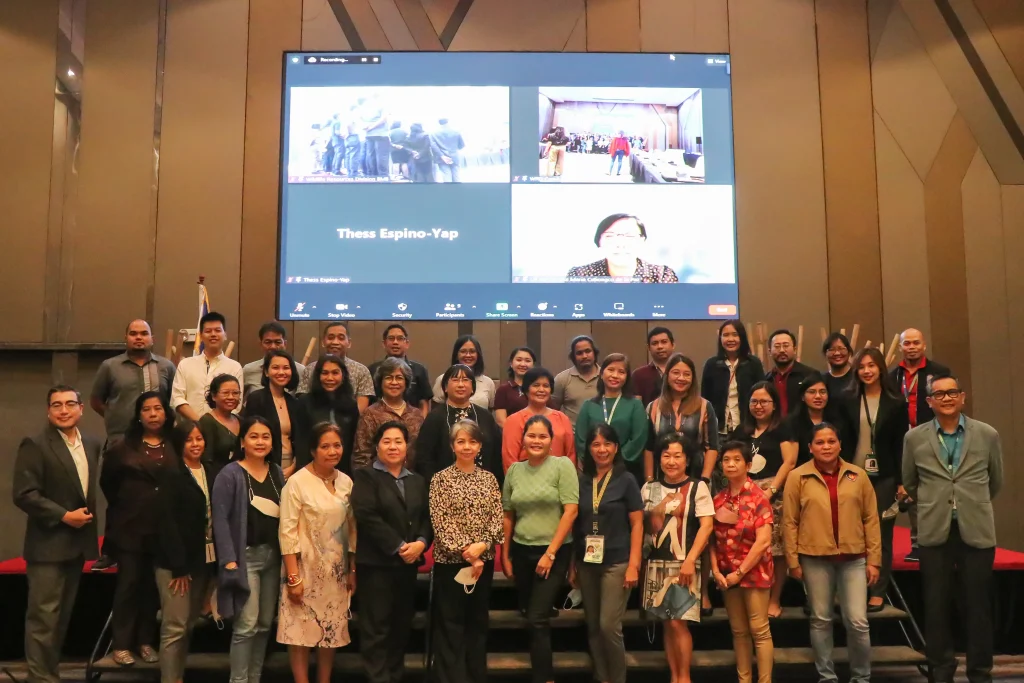
Quezon City, Philippines – Key government agencies forming the National Interagency Technical Working Group (NTWG) of the Implementing the National Framework on Access and Benefit Sharing of Genetic Resources and Associated Traditional Knowledge in the Philippines Project (ABS Project) convened to support the project’s implementation strategies on September 6, 2022.
Funded by the Global Environment Facility (GEF), the ABS Project is being implemented by the Department of Environment and Natural Resources (DENR) – Biodiversity Management Bureau (BMB), with support from the United Nations Development Programme (UNDP) in the Philippines as the implementing agency.
Primarily, the ABS Project aims to establish the national coordinating mechanism, procedures, tools, and platforms that will enable the Philippines to comply with the Nagoya Protocol. It is an international agreement that seeks to provide a transparent legal framework to implement the fair and equitable sharing of benefits arising out of the utilization of genetic resources, the third objective of the Convention on Biological Diversity. As one of the 18 mega-biodiverse countries of the world, the Philippines acceded to the Nagoya Protocol in December 2015.
The ABS Project seeks to increase economic opportunity and biodiversity conservation for indigenous peoples and local communities in the Philippines stemming from fair and equitable sharing of biodiversity benefits. During its 6-year implementation, the project aims to develop at least 2 bioproducts from local genetic resources of banaba in Region III and pili in Region V. This could be achieved by demonstrating the conduct of Free Prior Informed Consent (FPIC) and Prior Informed Consent (PIC) and agreed benefit-sharing; and by implementing biodiversity conservation practices in selected project communities.
Indigenous peoples and local communities who lack sustainable livelihood living in key biodiversity areas could gain monetary and/or non-monetary benefits from fair and equitable use of genetic resources.
The NTWG plenary discussion was presided over by the NTWG Chairperson and DENR-Biodiversity Management Bureau Assistant Director Amelita DJ Oritz. In attendance at the event were several national government agencies and state universities, including the Department of Agriculture-Bureau of Fisheries and Aquatic Resources (DA-BFAR), DA- Bureau of Plant Industry (BPI), DA- Policy Research Service (PRS), Department of Health-Philippine Institute of Traditional and Alternative Health Care (DOH-PITAHC), Department of Science and Technology-Philippine Council for Agriculture, Aquatic and Natural Resources Research and Development (DOST-PCAARRD), DOST- Philippine Council for Health Research and Development (PCHRD), DOST-Forest Products Research and Development Institute (DOST-FPRDI), National Committee on Biosafety of the Philippines, DENR-Ecosystems Research and Development Bureau (ERDB), DENR-Foreign-Assisted and Special Projects Service (FASPS), DENR-Forest Management Bureau, National Commission on Indigenous Peoples (NCIP), National Economic and Development Authority (NEDA), National Museum of the Philippines (NMP), Intellectual Property Office of the Philippines (IPOPH), UP Manila – National Institutes of Health (NIH), and UP Diliman – Institute of Biology (IB). These agencies were also involved in the preparation of the Project Document submitted to the donor, the Global Environment Facility (GEF).
During the whole-day discussions, the NTWG members provided technical recommendations on the ABS Project’s implementation strategies. They also agreed on the selection criteria of project sites and NTWG representatives for the private sector, indigenous peoples, and local communities. After the session, the NTWG members endorsed the project results framework and the 2022 annual work plan for approval by the project board on September 27, 2022.
The ABS Project aims to increase economic opportunity by safeguarding the Philippines’ biological resources and its genetic diversity from unfair exploitation. In essence, this project is anchored on the Philippines’ Wealth Creation Programme from Biodiversity Resources, which was co-developed by DENR and UNDP back in 2014.
The wealth creation program targets to ensure sustainable management of biodiversity and genetic resources that generate economic and other benefits for the well-being of Filipinos. This could be achieved by developing and strengthening national capacities for the utilization and management of genetic resources.
The NTWG will convene with the site-level TWG tentatively on November 9-10 to address issues of ABS Project’s 2022 implementation and endorse the 2023 annual work plan.
As the ABS Project moves forward to full implementation in October, a national research and development consultation meeting with the private sector will be conducted to ensure due diligence. In addition, there will be site validation and assessment in Regions III and V to finalize specific project sites where banaba and pili are abundant.



